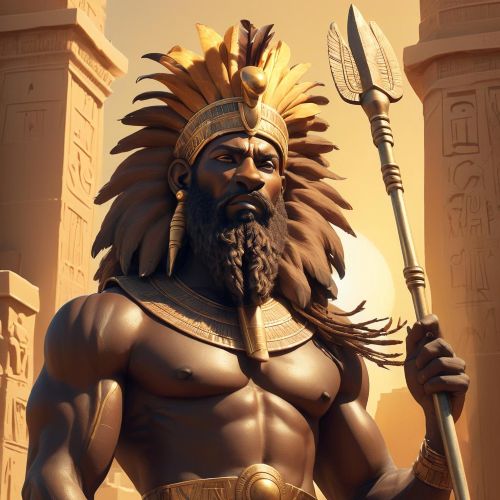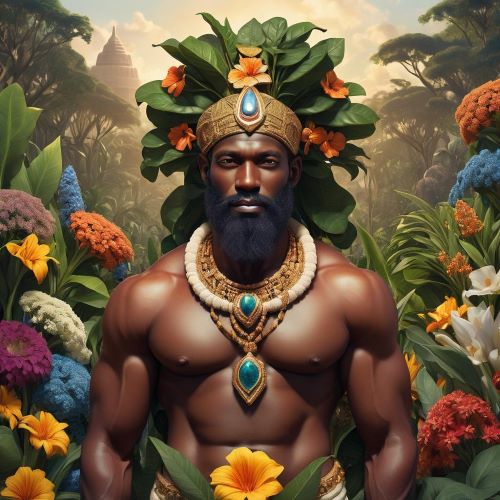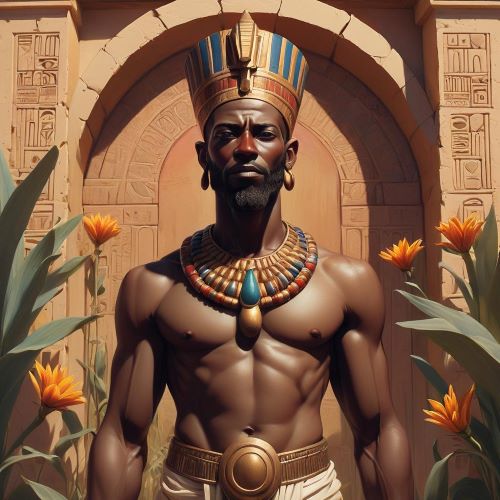Nubian Mythology
Nubian mythology, originating from the ancient civilizations of Nubia in northeastern Africa, is a fascinating blend of spiritual beliefs, deities, and cultural practices that reveal the Nubian people’s deep connection to their environment and the divine. Situated along the Nile River, Nubia was influenced by both indigenous beliefs and neighboring Egyptian mythology. Central to Nubian mythology are gods and goddesses who represent natural forces, fertility, protection, and the afterlife. One of the most prominent deities in Nubian mythology is Apedemak, the lion-headed warrior god associated with strength, power, and war. Apedemak, often depicted in temple carvings and reliefs, symbolizes the Nubian kings’ military prowess and divine authority.
In addition to Apedemak, Nubian mythology features a pantheon of gods that overlap with Egyptian deities, such as Amun, Isis, and Osiris, showing the close ties between the two cultures. However, Nubian interpretations of these gods often took on unique characteristics. Amun, the god of creation and fertility, was especially revered in Nubia, where he was worshipped in temples like the grand complex at Jebel Barkal. The people believed that the Nubian pharaohs were descendants of gods, and the divine right to rule was closely tied to the blessings of these deities. Myths about the afterlife and judgment also reflect Egyptian influence, where the dead would embark on a journey to the underworld, guided by gods like Osiris and Anubis.
The connection between the Nile River and Nubian mythology is significant, as the river was not only a vital source of sustenance but also a spiritual symbol of life, death, and rebirth. The river was seen as a gift from the gods, and many myths emphasized the importance of maintaining harmony with nature. The Nubians held festivals and rituals to honor the gods and ensure the annual flooding of the Nile, which was essential for agriculture. The mythology also reflects the Nubians’ strong connection to animals, with creatures like the lion, falcon, and crocodile appearing in religious symbolism as protectors and sacred beings. These animals often embodied the strength, wisdom, and power that the Nubian gods represented.
Today, Nubian mythology continues to influence the cultural identity of modern Nubian people. Although much of ancient Nubian religion was absorbed or adapted through the spread of Christianity and later Islam, the myths and stories still persist in cultural memory. In modern times, the legacy of Nubian mythology can be seen in the preservation of ancient temples, artwork, and archaeological discoveries. Nubian art, which often depicts gods, animals, and natural forces, remains a testament to the rich spiritual life of this civilization. As efforts to preserve Nubian heritage continue, the mythology stands as a symbol of the resilience and cultural pride of the Nubian people, offering insight into their historical worldview and their enduring relationship with the divine.



